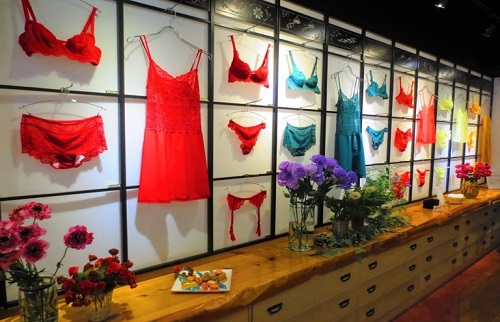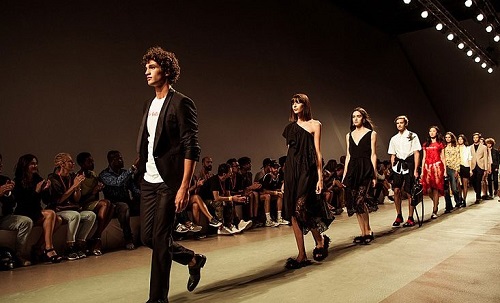FW
AEPC says around 20 per cent of apparel exporters in India have resumed operations with 25-30 per cent of their workforce. Many apparel makers opened some of their factories with a rudimentary workforce in April to make personal protective equipment, but now more factories are being opened and production of apparels is being resumed. These include leading exporters like Shahi Exports, Gokaldas Exports, Texport Industries, Matrix Clothing and Orient Fashion Exports.
With lockdowns in place the world over to contain Covid-19, many companies had cancelled or deferred their orders, said people in the know. Some of these orders were in the middle of production and the salvage value of these was less than a quarter of the cost. According to industry estimates, between 15 and 25 per cent of orders placed before the pandemic have been cancelled with companies invoking the ‘force majeure’ clause and not all have reimbursed their suppliers for the material loss.
Meanwhile, companies have been negotiating for longer payment schedules than the usual 30-day or 60-day cycles to 90 and 120 days, leading to cashflow constraints for manufacturers. Some have even tried negotiating for 180 days.
New orders for fall and winter collections are also being delayed as stores in the western hemisphere are only now slowly opening and the companies are yet to assess the demand. Since many corporate offices in Europe and the US remain closed, it will take longer for clarity to emerge whether these orders will come at a later stage or not.
Export business upwards of $3 billion has been impacted due to the Covid-19 pandemic because key European markets like Italy had gone into lockdown even before India in mid-March.
Labor rights advocates recently complained to the Workers Rights Consortium that Bestseller is imposing retroactive price reductions, order cancellations and extended delays in payment of invoices across its supply chain. The Denmark-headquartered apparel retailer—which also owns the Jack & Jones, Mamalicious and Vero Moda brands—has canceled up to 20 per cent of completed and in-process orders without compensation while imposing price cuts of up to 25 per cent on the orders it is accepting.
Despite it’s previously announced commitment to accept delivery of finished and in-production orders, plus its pledge to remain in “close dialogue” with suppliers amid the coronavirus pandemic, Bestseller has not promised to pay for these orders in full. Instead it is telling suppliers to accept retroactive cancellations and price reductions on its orders, which vary in size from supplier to supplier and which, in the aggregate, constitute a huge financial blow to Bestseller’s supplier base and to the workers who make its clothes.
Thousands of apparel industry workers in Bangladesh are protesting over lack of salaries. Some workers had vandalised a ready-made garment (RMG) factory belonging to DBL Group in Kashimpur, under Gazipur district, demanding full wages for April and Eid bonuses.
The government has already given a directive on this issue, saying only those who were present at work for the entire month of April will get 100 per cent salaries. Workers who did not have 100 per cent attendance will get full salary for the working days and 65 per cent for the remaining days.
MA Rahim, Vice Chairman, DBL Group said they have paid the salaries as per the instructions of the government. He explained that the time for paying Eid bonuses had not come yet.
Similar scenarios played out in at least 10 factories of Gazipura and Ashulia on the same day, according to sources. The factories are Gazipur-based Mondol Group, Metro Knitting and Dyeing Mills, Fareast Knitting and Dyeing Mills, The Ashulia-based factories are Sharmin Group, Starling Creation, Yeagi Bangladesh, Ratul Fabrics, and Manami Fashion.
BGMEA sources said other big RMG companies have also faced such demonstrations in the last few days, including Hameem Group, Envoy Group and Islam Group – all based in Ashulia. Rezwan Salim, a BGMEA director, also acknowledged the trend. According to IndustriALL Bangladesh Council (IBC) Secretary General Salauddin Shapon, could be the absence of trade unions, the reason for this could be the absence of trade unions.
A recent poll of 2,000 Americans conducted by Slickdeals and OnePoll revealed, the expenditure of average, American on impulse buys has increased by18 per cent to $182.98. Nearly 72 per cent respondents reported buying something impulsively during the pandemic positively affected their mood. The top items that Americans ought impulsively during this period included cleaning supplies, hand sanitizer and toilet paper. Around one in four consumers also reported buying something as a treat that they've had their eye on for a while. Nearly one in five impulsively purchased a new video game console, with 22 percent purchasing clothing and 18 percent spending on home improvement.
According to the results, more than half of Americans polled credited impulse buying with actually saving them money in the long run. When impulsively shopping, 52 per cent respondents said they typically take advantage of a deal rather than buying at retail price.
While the majority of impulse buys tend to be for oneself, getting things for their children was also a top response, with gifts for friends, and their partner scoring high marks as well. Nearly one in five say they impulse spend on their pet. Since the pandemic began, 46 percent reported ordering online groceries for the first time, with 47 per cent trying a new streaming service and 35 per cent being a first-time customer with a restaurant delivery app. Nearly 71 per cent revealed their plans to continue shopping online even after the stay-at-home order is lifted for them.
 COVID-19 crisis is likely to result in a $9 trillion loss for economies worldwide. Many developed economies like Germany, France, Italy, Spain, Great Britain and US and several nations of G7 may go into recession with chances of recovery from April 2021 onwards. These countries are fighting this deadly pandemic by coming out of the lockdown in a slow and sustained manner. In India, the government has allowed partial lifting of lockdown for various businesses in the Green Zone and restricted lifting in Orange Zone which will be followed by lifting of lockdown conditions on several other businesses.
COVID-19 crisis is likely to result in a $9 trillion loss for economies worldwide. Many developed economies like Germany, France, Italy, Spain, Great Britain and US and several nations of G7 may go into recession with chances of recovery from April 2021 onwards. These countries are fighting this deadly pandemic by coming out of the lockdown in a slow and sustained manner. In India, the government has allowed partial lifting of lockdown for various businesses in the Green Zone and restricted lifting in Orange Zone which will be followed by lifting of lockdown conditions on several other businesses.
To gauge the impact of lockdown on manufacturers, Lace n Lingerie conducted a survey among 300 manufactures of intimate wear, nightwear, loungewear, athleisure, men’s innerwear from Mumbai, Delhi, Tirupur, Coimbatore, Ghaziabad, Ludhiana, Bangalore, Kochi, Chennai etc. The survey was conducted from April 10-17, 2020.
Lingerie businesses to shrink by 60 per cent
About 50 per cent respondents opined their businesses will shrink between 21 to 40 per cent while about 25 per cent expected it to shrink by up to 60 per cent. However, around 20 per cent respondents did not expect the lockdown to impact their business in any way.
cent. However, around 20 per cent respondents did not expect the lockdown to impact their business in any way.
Around 3 per cent respondents expected their businesses to stablize within three to six months post lockdown, however 21. 5 per cent expected the recovery to come within three months. However, a majority of respondents, around 36 per cent, expected recovery in 6 to 12 months or more.
Brands to reduce staff and salaries
To tide over expenses incurred due to the lockdown, about 18 per cent stated they would try and reduce staff salaries while 11 per cent planned to reduce staff, travel, space and even marketing and branding expenses. They also planned to lower their rentals by up to 29 per cent.
Around 79 per cent respondents sought government support to maintain the current level of staff if the lockdown persisted further. Almost 63 per cent revealed cancellations to prior orders. However, 39 per cent did not mention any order cancellations, which augurs well for this sector recovering well before the other sectors of the garment industry.
Future bright as demand to rise
As intimate wear is a need-based functional item, the lockdown has also led to a huge rise in demand as people prefer to dress in loungewear, boxer shorts, bermudas, pajamas and basic bras and panties and underwear during this period.
Around 21 per cent view order cancellations to be a result of stock correction with distributors and retailers likely to reorder or perhaps order more from the same brand over more basic and VFM items. The survey revealed, consumers may defer purchasing intimate wear for a week or so but will definitely return to the market in times to come.
 Even before the spread of COVID-19, the fashion industry was facing an existential crisis due to its obsession with fantasy and exclusivity. Now, as health experts warn of a the second wave of the virus, many fashion players are yet to make plans to deal with the pandemic, though some have been replacing physical shows with digital ones, or kicking the can further down the road.
Even before the spread of COVID-19, the fashion industry was facing an existential crisis due to its obsession with fantasy and exclusivity. Now, as health experts warn of a the second wave of the virus, many fashion players are yet to make plans to deal with the pandemic, though some have been replacing physical shows with digital ones, or kicking the can further down the road.
Getting intimate with consumers
Pioneering this initiative, Kering-owned, billion-dollar brand Saint Laurent does not plan to stage any runway shows for the remainder of the year. Instead, the brand will showcase its clothes on a self-determined calendar. The brand plans to take control of its pace and reshape its schedule by showing collections outside the tightly organized Paris Fashion Week calendar and release advertisements in tandem with the collections’ arrival in stores. The brand’s approach includes encouraging a more lasting, less ephemeral attitude toward experiences and products.
Similarly, Hermès is emphasizing on the human aspect of its artisanal tradition by adding the names of its designers on its scarves. Brand ambassadors Naomi Campbell, Marc Jacobs, and Riccardo Tisci are using digital media to become more intimate with their audiences, making things that once took months to consider and arrange into now-daily occurrences. Though the brand plans to skip fashion shows this year, it still plans to advertise its collections.
Naomi Campbell, Marc Jacobs, and Riccardo Tisci are using digital media to become more intimate with their audiences, making things that once took months to consider and arrange into now-daily occurrences. Though the brand plans to skip fashion shows this year, it still plans to advertise its collections.
Being humane
For years now, celebrities have been skipping traditional press opportunities for social media which allows them to stage their own narratives and maintain optimum control. However, this adds to the pressure on brands to convince their customers that their products are worth the price. Consumers are already growing suspicious of brands that claim to do something bigger than make clothes. The key is to act humane, instead of like a human.
Rather than democratizing the industry, brands should attempt to personalize their offering, which spells a different kind of luxury for consumers. They should focus on not only on personalizing their websites but also adding a personal touch to their products on other social media channel that would ensure an enhanced shopping experience to consumers.
Sweden’s ACG Group has set up a dedicated new nonwovens fabric converting and single-use garment making-up plant in just three weeks.
The new plant was established to convert and coat the fabric and turn it into fully finished protective overalls for hospital staff each month. It now employs 80 staff in a two-shift operation and has been such a success that a second immediate order has been secured from the Swedish authorities. This will push production up to a monthly 1.8 million square metres of converted fabric turned into 692,000 finished medical garments.
In a fresh sign of the European Union’s ambitions to expand its green regulatory footprint around the globe, the bloc’s environment chief Virginijus Sinkevicius vowed to zero in on the apparel industry to ensure that it avoids using harmful chemicals and wasting water. Sinkevicius says the new draft EU rules will aim to require information on clothing labels about the resources used in manufacturing and set sustainability obligations for producers seeking access to the €500 billion European single market for textiles and apparel.
The EU announced in December an unprecedented “Green Deal” to become the first climate-neutral continent through an economic overhaul that will affect industries ranging from energy to agriculture.
The new “circular economy” initiative covers industries ranging from textiles and construction to electronics and batteries. It sets the stage for months of work by the European Commission, the EU’s regulatory arm, on detailed proposals that EU lawmakers would need to approve in a process lasting many more months. The portion of the plan dealing with textiles has the potential to affect numerous apparel companies that rely on low-cost Asian countries including China, Vietnam and Bangladesh as production sites.
It would be a further example of how the EU, the world’s most lucrative single market, deploys its rule-making authority to exert soft power over businesses across the globe. A previous landmark example of this occurred in the mid-2000s when, during three years of deliberations, the EU pushed through tougher chemical rules over the resistance of the industry and trade partners.
Sinkevicius says EU national governments would have to step up enforcement of any new environmental legislation covering the textiles industry to ensure the bloc’s credibility. He signaled that the future EU labeling framework for textiles would resemble decade-old European eco-design legislation for improving the energy efficiency of household appliances like refrigerators and televisions. These rules, which include labeling requirements, have helped cut EU electricity consumption by the amount of power that Italy uses annually.
China's Ministry of Commerce (MOC) has revealed that the 127th session of the China Import and Export Fair, also known as the Canton Fair, will exempt exhibition fees for enterprises. The 127th session of the Canton Fair will be held online from June 15 to 24. Exhibition fees will be waived to cope with the impact of the COVID-19 epidemic and help foreign trade enterprises to expand market and tide over difficulties.
The cross-border e-commerce platforms that participate in the fair-related activities will also be exempted from fees. The MOC has lowered the exhibition fees of the Canton Fair for many sessions to relieve pressure on firms and exempted booth fees for enterprises from poverty-stricken areas in recent years, saving over 2 billion yuan ($283 million) for enterprises.
Under Armour expects its second quarter revenues to decline by as much as 50 to 60 per cent as demand for apparel and goods remain low. The American sportswear giant reported worse than expected first-quarter losses and sales as its business continues to be hit hard by the pandemic. Due to store closures and lockdown measures, its revenue declined by 23 percent to $930 million, seeing a revenue decrease of 28 percent in North America and 12 percent in international business.
The brand’s shares fell by 8.6 percent to $9.13 on the stock market — in contrast, those of Nike fell by 0.9 percent and adidas lost 1 percent. Under Armour also reported a net loss of $589.7 million compared to a profit of $22.5 million recorded previous year.
The athletic apparel company will cut about $325 million n operating costs in 2020 to address challenges posed by the pandemic. As it looks to revive its business, the company could face $475 million to $525 million million in pretax restructuring costs — in the first quarter, it already recorded $436 million in restructuring and impairment charges.












